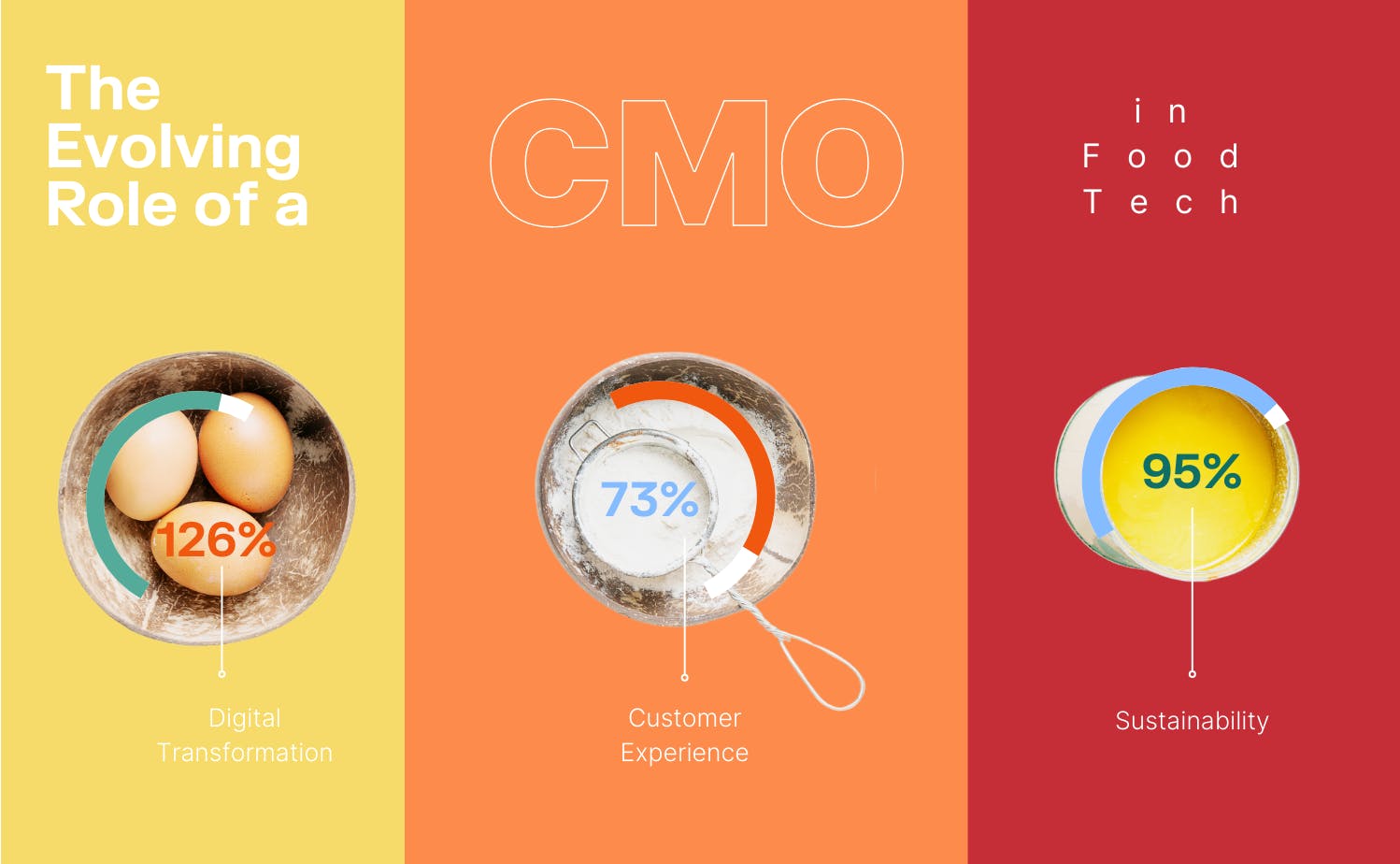
The Evolving Role of a CMO in Food Tech

The role of a Chief Marketing Officer (CMO) in the food tech industry is undergoing a significant transformation. As the industry evolves, CMOs must adapt to new responsibilities and challenges that reflect the dynamic landscape of food technology, delivery platforms, and customer expectations.
The Shift in Responsibilities
Traditionally, CMOs focused on brand management, advertising, and market research. Today, their role encompasses a broader range of strategic functions:

- Digital Transformation: CMOs are at the forefront of integrating digital technologies into marketing strategies. This includes leveraging big data, AI, and machine learning to enhance customer insights and personalize marketing efforts. According to a report by McKinsey, companies that effectively use customer analytics report 126% profit improvement over their competitors.
- Customer Experience (CX): The modern CMO is responsible for ensuring a seamless and engaging customer journey. This involves collaborating with other departments to optimize user experience across all touchpoints, from app interfaces to customer service. A study by PwC found that 73% of consumers point to customer experience as an important factor in their purchasing decisions.
- Sustainability and Ethics: With consumers becoming more environmentally conscious, CMOs must advocate for sustainable practices and transparent communication regarding sourcing, packaging, and corporate social responsibility (CSR). Nielsen reports that 81% of global respondents feel strongly that companies should help improve the environment.
Innovations Driving Change
Several innovations are reshaping the food tech marketing landscape:
- Artificial Intelligence (AI): AI-driven tools help CMOs analyze customer behavior, predict trends, and automate personalized marketing campaigns. According to Gartner, 47% of AI investments have produced measurable returns.
- Augmented Reality (AR): AR applications enhance customer interaction by providing immersive experiences, such as virtual try-ons or 3D product visualizations. Statista forecasts that AR ad spend will reach $15.3 billion by 2023.
- Blockchain: Blockchain technology ensures transparency in supply chains, building consumer trust and enhancing brand reputation. A Deloitte survey indicates that 53% of executives see blockchain as a top-five strategic priority.

Case Studies of Successful Adaptation
- Domino's Pizza: By embracing digital transformation, Domino's has revolutionized its ordering process with AI-powered chatbots and real-time tracking, resulting in a 14% increase in sales from digital channels according to Domino's 2020 Annual Report.
- Blue Apron: Blue Apron has successfully integrated sustainability into its brand, highlighting its commitment to ethical sourcing and eco-friendly packaging, which resonates with environmentally conscious consumers. This approach has led to a 30% increase in customer retention rates, as reported in their 2020 Sustainability Report.
In conclusion, the role of a CMO in food tech is evolving to encompass digital innovation, customer experience, and ethical marketing. By staying ahead of these trends, CMOs can drive growth and maintain a competitive edge in the industry.